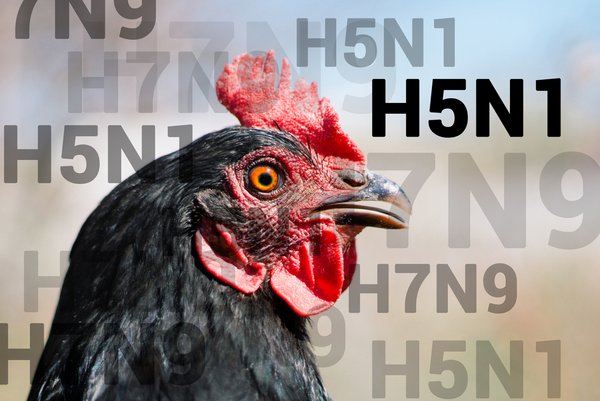- Share this article
- Subscribe to our newsletter
An anti-bird flu vaccine from plants?
In years of close collaboration, researchers at the Leibniz Institute of Plant Genetics and Crop Plant Research (IPK) in Gatersleben, Germany, and the Institute of Biotechnology (IBT) in Hanoi, Vietnam, have developed a method to produce avian influenza vaccines in plants. Now a new project is focusing on the practical application of the results obtained so far and the development of cheap and stable bird flu vaccines. These are to contribute to fending off new bird flu epidemics as soon as possible.
Zoonoses are a source of recurrent incidents of new infectious diseases that can be transmitted from animals to humans. One of the probably most well-known zoonoses is bird flu, a highly pathogenic influenza A virus. Owing to its swift and simple propagation through birds and the threat of a pandemic that this bears, efforts are constantly being made to check the infection pathogen of this influenza.
A growing demand for affordable vaccines in veterinary medicine
There is a growing demand for affordable vaccines in veterinary medicine that promote the wellbeing of livestock and combat zoonotic diseases such as bird flu. Early this year, a new project was launched by the IPK and the IBT. Together with the Vietnamese company NAVETCO, which is active in the field of bird flu vaccination, they are working on a fast and affordable production of vaccines against bird flu pathogens.
In addition to being a threat to animals and humans, bird flu epidemics can considerably influence the regional production of poultry meat and eggs. Attempts so far to check bird flu epidemics have resulted in several millions of poultry birds being culled. But especially in developing countries, where poultry production makes a crucial contribution to food, livestock keepers are resisting the application of this measure.
The introduction of an affordable and reliable vaccination as a prophylaxis or as an emergency vaccination is regarded as a sensible tool to reduce the infection rate of bird flu. But in order to be able to respond to new outbreaks, appropriate vaccines need to be developed and made available as soon as possible.
The conventional creation of vaccines in embryonated chicken eggs takes five to six months. The creation of so-called subunit vaccines in plants is a modern alternative. The advantages of this method are not just short production periods enabling a quick adaptation to changing viruses in the field but also low production costs, simple scaling and low infrastructure costs.
A new project to translate pure research into practice
Scientists of the IPK working group on phyto-antibodies, headed by Professor Udo Conrad and IBT researchers have already worked on an effective method to create such plant-based peptide vaccines in a previous project. As a result, they succeeded in producing haemagglutinin multimers, special bird flu antigens, in tobacco plants (Nicotianabenthamiana) and demonstrating their neutralising immune responses in mice.
In the new project, these pure research results are to be translated into practical applications. In the next step, challenge experiments with chickens are planned that are to test the robustness of the newly developed method in practice. The researchers’ long-term goal is to develop a peptide vaccine created in plants to tackle bird flu viruses. With this vaccine, they hope to soon be able to develop a new method to check and prevent further avian influenza pandemics.
(ipk/wi)





Add a comment
Be the First to Comment